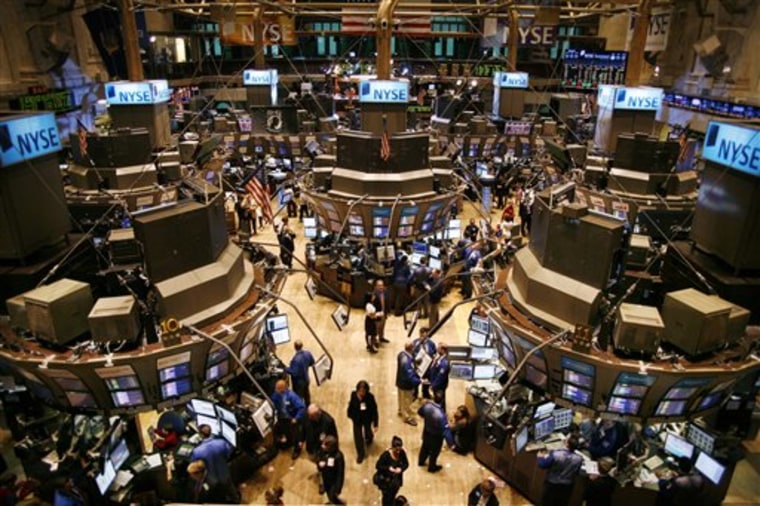Be careful what you wish for.
Investors have been hoping for signs that the economy is strong enough to justify continuing Wall Street's nine-month rally. They got the surest evidence yet Friday when the government said employers cut fewer jobs in November than at any time since the recession began in late 2007.
But the good news is making many investors uneasy. Traders are asking whether the strengthening economy will lead the Federal Reserve to start raising rates or scale back its stimulus measures, and whether the dollar, responding to higher rates, will reverse its long slide.
Low rates and a weak dollar have helped feed stocks' comeback. So, what happens now depends on where traders think they can make the most money: in stocks as companies make more profits in a stronger economy, or in other investments like the dollar whose returns will improve as rates rise.
"The Fed was forcing people to take risks," buying stocks and commodities to boost their returns, said Justin Golden, a strategist at Macro Risk Advisors.
On Friday, investors were betting that the Fed will raise rates by June. They weren't happy about that prospect — an initial surge in stock prices that followed the report soon dwindled.
The numbers were pretty stunning. The Labor Department said the economy cut 11,000 jobs last month, much smaller than the 130,000 predicted by economists polled by Thomson Reuters. And the unemployment rate fell to 10 percent from a 26-year high of 10.2 percent in October.
Beyond the report's headline numbers, Keith Walter, co-portfolio manager at Artio Global Management, said improvement in the average weekly hours worked and the growing number of temporary employees showed the job market is recovering. That gives the Fed more room to act.
But even if the Fed doesn't raise rates soon, it might cut back on some programs it put in place during the credit crisis to stimulate the economy, including the low-cost loans it has offered big banks. Analysts say that's the likely first step before any rate increase.
"The Fed easing cycle might end sooner than thought even just days ago," said Maury Fertig, chief investment officer at Relative Value Partners.
Analysts say that if stocks rise this week, it will be a sign that for now, investors are happier with signs of recovery and making their money from healthier companies than they are concerned about potential Fed actions.
But the dollar is still likely to be a factor. A cheap dollar benefits companies in several ways. Those with operations overseas get more dollars when the earnings they make in local currencies are translated into greenbacks. And they can sell more goods and services in other countries.
Analysts believe investors need to lose their either-or approach to stocks and the dollar for Wall Street to hold on to its upward momentum.
"We'll have to see the dollar go up and the market stay up," at the same time, said Ken Grant, partner at Waterstone Private Wealth Management. "That's the next litmus test."
Artio's Walter said signs of an improving economy are likely to win the day. He expects stocks to rise early in the week on continued expectations of a recovery.
